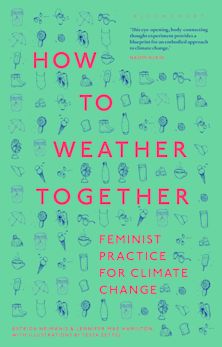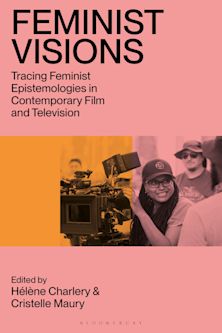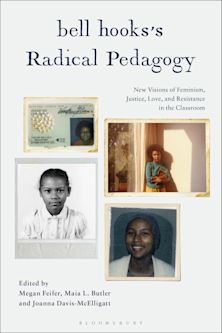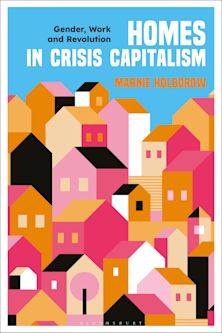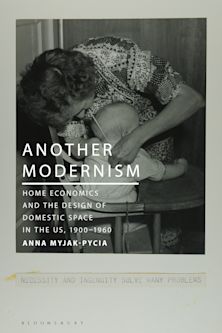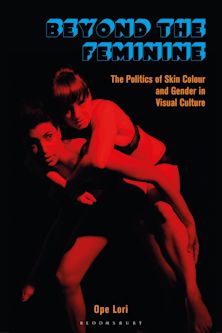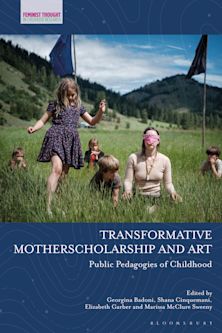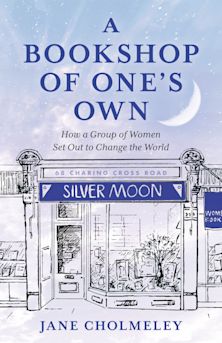- Home
- ACADEMIC
- Gender & Sexuality Studies
- Feminism
- Feminisms and Ruralities
Feminisms and Ruralities
Barbara Pini (Anthology Editor) , Berit Brandth (Anthology Editor) , Jo Little (Anthology Editor) , Jenny Barker Devine (Contributor) , Lia Bryant (Contributor) , Anne Byrne (Contributor) , Kate Cairns (Contributor) , Nata Duvvury (Contributor) , Sara Egge (Contributor) , Gro Follo (Contributor) , Marit S. Haugen (Contributor) , Julie C. Keller (Contributor) , Belinda Leach (Contributor) , Mona Livholts (Contributor) , Susan Machum (Contributor) , Áine Macken-Walsh (Contributor) , Nicole Power (Contributor) , Jennifer Rogers-Brown (Contributor) , Sally Shortall (Contributor) , Maarit Sireni (Contributor) , Tanya Watson (Contributor) , Imelda Whelehan (Contributor)
Feminisms and Ruralities
Barbara Pini (Anthology Editor) , Berit Brandth (Anthology Editor) , Jo Little (Anthology Editor) , Jenny Barker Devine (Contributor) , Lia Bryant (Contributor) , Anne Byrne (Contributor) , Kate Cairns (Contributor) , Nata Duvvury (Contributor) , Sara Egge (Contributor) , Gro Follo (Contributor) , Marit S. Haugen (Contributor) , Julie C. Keller (Contributor) , Belinda Leach (Contributor) , Mona Livholts (Contributor) , Susan Machum (Contributor) , Áine Macken-Walsh (Contributor) , Nicole Power (Contributor) , Jennifer Rogers-Brown (Contributor) , Sally Shortall (Contributor) , Maarit Sireni (Contributor) , Tanya Watson (Contributor) , Imelda Whelehan (Contributor)
This product is usually dispatched within 3 days
- Delivery and returns info
-
Free US delivery on orders $35 or over
You must sign in to add this item to your wishlist. Please sign in or create an account
Description
Feminist concern with difference has rarely extended to rurality even if it is now widely recognized that experiences of inequality depend on intersections of several identities in each individual life. This lack of concern may reflect the urban background of the majority of feminist academics or at least their urban positionality once in the academy. It may equivalently be that feminists have been influenced by stereotypes of rural women as traditional and reactionary, and thus seen them as unlikely exponents of gender equality, and an unfruitful focus for scholarly energies. Perhaps the problem is a broader one, that is, reflective of the much documented, but still apparent unwillingness of many feminists to recognize and address difference in any of its manifestations. Regardless, even with the recent interest in intersectionality which has necessarily renewed and reenergized debates in feminism about diversity and inclusion, the question of how women are differently positioned because of their non-metropolitan location has remained largely overlooked.
Table of Contents
Chapter 2: Putting the Community First: Feminism and Rural American Women’s Activism in the Twentieth Century, Sara Egge and Jenny Barker Devine
Chapter 3: A Rural Woman’s Impact on Canadian Feminist Practice and Theory, Susan Machum
Chapter 4: Feminism in Rural Finland: A Comparison of Agendas of Two Women’s Organizations, Maarit Sireni
Chapter 5: Paradoxes of a Women’s Organization in the Forestry Industry, Berit Brandth, Gro Follo and Marit S. Haugen
Chapter 6: Gender Mainstreaming or Strategic Essentialism? How to Achieve Rural Gender Equality, Sally Shortall
Chapter 7: Feminist Connections in and beyond the Rural, Belinda Leach
Chapter 8: The Feminist and the Cowboy: Reading “An Unlikely Love Story”, Barbara Pini and Imelda Whelehan
Chapter 9: The Development of Feminist Perspectives in Rural Gender Studies, Jo Little
Chapter 10: Finding ‘Room to Manoeuvre’ – Gender, Agency and the Family Farm, Anne Byrne, Nata Duvvury, Áine Macken-Walsh and Tanya Watson
Chapter 11: The Gendered Ma(i)ze of Globalization, Jennifer Rogers-Brown
Chapter 12: Rural Queer Theory, Julie Keller
Chapter 13: Girls’ Studies in the Rural, Kate Cairns
Chapter 14: Reflections on a Feminist Care Approach to Rural Fisheries Communities, Nicole Power
Chapter 15: Memory Work and Reflexive Gendered Bodies: Examining Rural Landscapes in the Making, Lia Bryant and Mona Livholts
Chapter 16: Conclusion, Barbara Pini, Jo Little and Berit Brandth
Product details
| Published | Apr 18 2016 |
|---|---|
| Format | Paperback |
| Edition | 1st |
| Extent | 250 |
| ISBN | 9781498508858 |
| Imprint | Lexington Books |
| Illustrations | 1 Table |
| Dimensions | 9 x 6 inches |
| Publisher | Bloomsbury Publishing |
About the contributors
Reviews
-
It may be that in the past, feminist scholars paid little attention to gender inequality in rural areas because of presumed patriarchy and the associated masculinity of rural life. With this collected volume, which follows earlier efforts by two of the editors . . . the scholarly gap is closing . . . the overall scholarship in the contributors’ range of approaches and locations—issues of gender from queer theory to roles in agricultural and extractive production—is impressive. The introduction, conclusion, and 14 chapters are grouped into two sections. One is devoted to feminism and rural women, both historically and in present popular culture; the second section represents a collection of perspectives in several geographic locations. This solid contribution to the literature on women in rural areas continues the intellectual conversation about the importance of both place and gender. Summing Up: Highly recommended. Upper-division undergraduates and above.
Choice Reviews
-
Feminisms and Ruralities offers a fascinating new entry point into rural gender research by self-critically examining feminist academics’ recognition of, or blindness to, diversity in rural gender relations and the gains realized in the course of time. Captivating, also, is its presentation and discussion of post-feminist approaches that may enable us to come to terms with the multiplicity of the rural and the incoherent, non-linear, and contradictory development of rural gender relations.
Bettina Bock, Wageningen University
-
Feminisms and Ruralities provides valuable insights into the lived feminisms of rural women and how they might speak to urban-centric feminist theory and politics. Attention is drawn to the role of feminist theories in the study of men, women, children, landscapes and animals, and to the complex braiding of feminism with other theories and practices, including queer theory, girl studies, post-humanism, and memory studies. The integration of historical and contemporary research is a particularly notable feature of this collection, which encompasses studies from locations across Europe and North and Central America. Overall, a fascinating read that poses important questions of both rural and feminist studies.
Martin Phillips, University of Leicester













